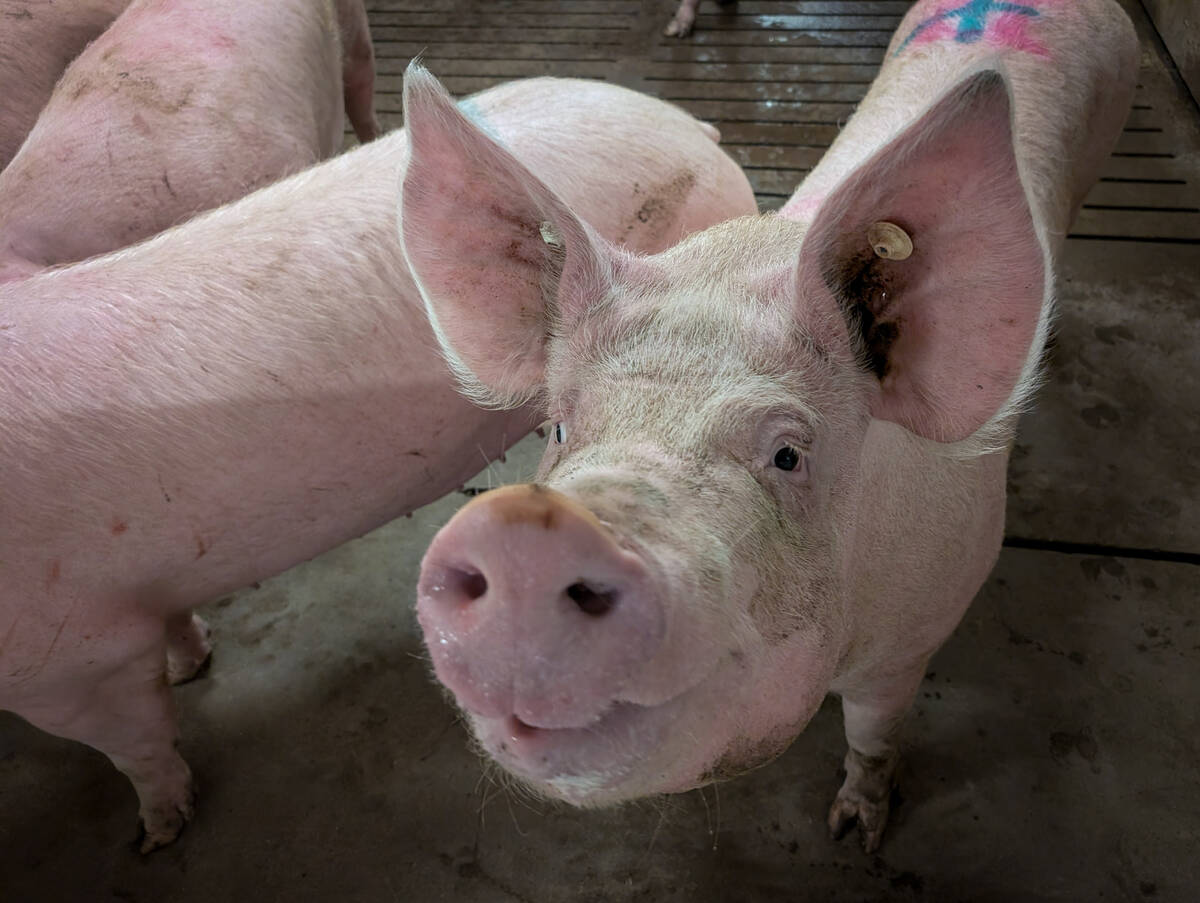An Ontario dairyman’s long-fought legal scrap to be able to distribute unpasteurized (“raw”) milk has hit another wall — this time a dismissal by Ontario’s Court of Appeal.
The decision, released Tuesday, upholds a September 2011 decision from the provincial Court of Justice against raw-milk advocate Michael Schmidt. [Related story]
The 2011 ruling overturned previous acquittals by a Newmarket, Ont. justice of the peace in January 2010 in favour of the Durham, Ont. farmer. [Related story]
Read Also

Gene edited, PRRS resistant pig approved in Canada
Canada has given its stamp of approval to pigs gene edited to resist porcine reproductive and respiratory syndrome (PRRS).
Schmidt, on his website Tuesday, noted his lawyer, Derek From of the Canadian Constitution Foundation, has previously indicated taking the case to the Supreme Court of Canada “might still be a possibility” if the top court were to agree to hear the case.
Schmidt was also quoted on CBC Tuesday as saying he would continue his milk operation in the meantime.
Schmidt had been charged in 2006 with 19 counts of selling and distributing unpasteurized milk and cheese, operating an unlicensed dairy and failure to obey a public health inspector’s order. The 2011 decision convicted him on 13 of those counts with a sentence of a year’s probation and fines of $9,150.
The charges stemmed from Schmidt’s operation of a “cow share” plan, in which he provided raw milk to area residents who paid $300 to $1,200 for what he described as an interest in a cow on his farm, plus a per-litre fee to cover the costs of keeping the cow and producing, bottling and handling the milk.
Writing for the appeal court following a Feb. 5 hearing, Justice Robert Sharpe on Tuesday shot down any claim that the cow-share agreements would take Schmidt’s operation beyond the reach of the provincial Health Protection and Promotion Act and Milk Act.
Cow-share members were said to be paying $300 for a 25 per cent interest in a cow, Sharpe wrote, but noted the cow-share operation had 150 individual or family members sharing just 24 cows. There was no evidence, he wrote, that the identity of the cow being shared was ever communicated to the shareholder, or that any ownership in the cow was ever formally transferred.
“The member does not acquire or exercise the rights that ordinarily attach to ownership,” Sharpe wrote, and is “not involved in the acquisition, disposition or care of any cow or of the herd.” Rather, the member gets just a right of access to the milk from the farm.
The appeal court, Sharpe said, “has resisted schemes that purport to create ‘private’ enclaves immune to the reach of public health legislation and has insisted that public health legislation not be crippled by a narrow interpretation that would defeat its objective of protecting the public from risks to health.”
In Sharpe’s view, he wrote, the cow-share arrangement “is nothing more than a marketing and distribution scheme that is offered to the public at large by (Schmidt).” Furthermore, he wrote, the Milk Act makes no exception for “private” operations and even if it did, “any member of the public” could procure unpasteurized milk from Schmidt’s plant.
Sharpe also rejected Schmidt’s proposed “fresh evidence,” an affidavit from an expert witness based on a recent article alleging a “protective effect of unpasteurized milk in relation to childhood asthma and atopy (certain allergic reactions).”
Sharpe said Schmidt’s proposed new evidence “essentially replicates” evidence previously seen at trial, and besides, he noted, the new evidence also supports the position that consumption of unpasteurized milk has its risks and “cannot be recommended.”
“Subjective belief”
Sharpe granted that the previous appeal judge erred in ruling that Schmidt didn’t have standing to challenge the law on behalf of the cow-share members. However, he rejected Schmidt’s claim that provincial health law, by banning sales of raw milk to people who deem it beneficial to their health, violates the cow-share members’ rights to “security of the person.”
Sharpe cited a previous marijuana case in which the Court of Appeal ruled such a violation of Charter rights “cannot be made out on the basis of an individual’s subjective belief that a banned substance would benefit his or her health.”
In the case of marijuana, however, Sharpe noted another Court of Appeal case in which there was “medical evidence to substantiate the claim that the health of the right’s claimant would improve if he were allowed to consume marijuana.”
Sharpe also rejected Schmidt’s claim that provincial health law infringes on his right to enter contracts and on cow-share members’ rights to make decisions of “fundamental personal importance.”
The Supreme Court of Canada, Sharpe noted, has already ruled that the “ability to generate business revenue by one’s chosen means” is not Charter-protected, and that the right to liberty “does not extend to an unconstrained right to transact business whenever one wishes.”
Furthermore, Sharpe noted, lifestyle choices as to food or other substances consumed are also not Charter-protected. Precedent cases have ruled that any society which extended Charter protection to “any and all such lifestyles” would be “ungovernable.”
Sharpe rejected Schmidt’s claim that health law on milk is “arbitrary and overbroad.” There’s “no evidence,” Sharpe ruled, that lawmakers could somehow narrow the reach of public health legislation in this case and still achieve its purpose.
Lastly, Sharpe also rejected Schmidt’s claim that he was not a milk “distributor” as laid out in provincial health legislation. Schmidt’s lawyers claimed the law defines a distributor as a “person engaged in selling or distributing fluid milk products” and points to fluid milk as a pasteurized product.
“This tortured submission must be rejected,” Sharpe wrote. “It would produce an absurd result that would eviscerate (health legislation) of any meaning.”
— Dave Bedard is daily news editor for the AGCanada.com Network in Winnipeg.















